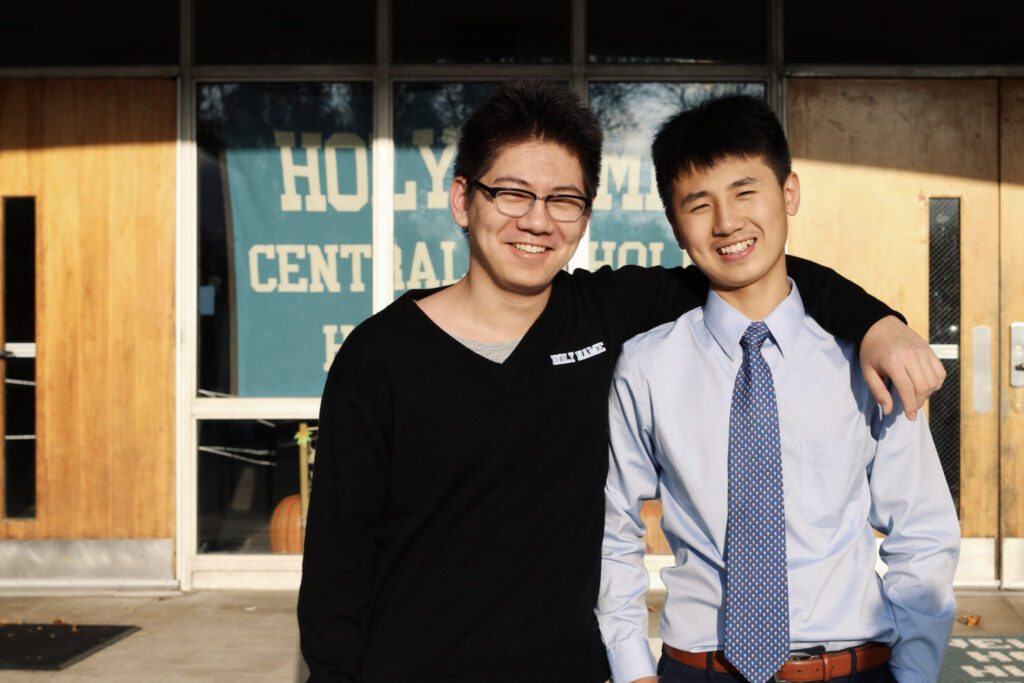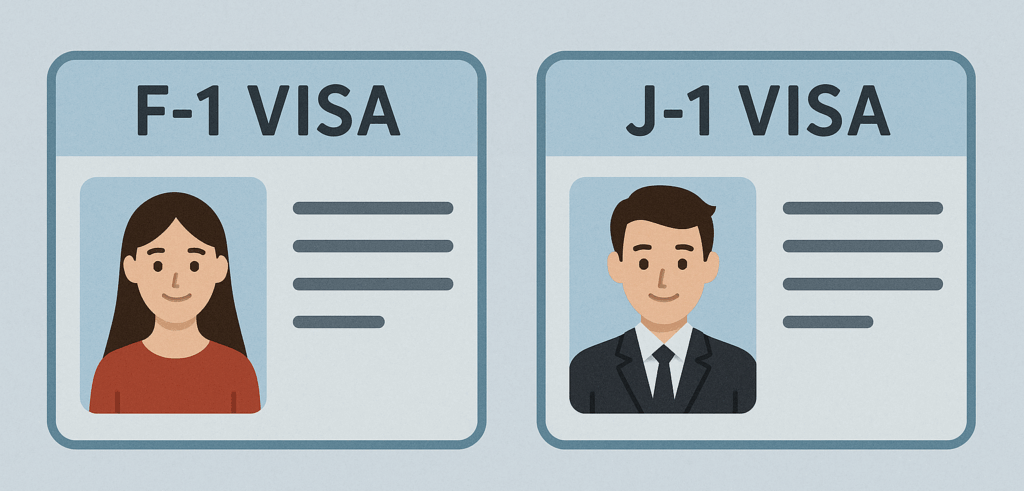Choosing the right U.S. private high school is one of the most important decisions international students can make. In this article, we’ll explain the four main types of U.S. private high schools for international students—and offer a timeline to help students prepare for admission with confidence.
While there are many ways to categorize U.S. private high schools, we have divided them into four categories based on the preferences and needs of international students. To help international students plan effectively, the application timeline is organized according to the competitiveness of each school category:
A. Elite Private Schools
B. Good Private Day Schools
C. Mid-Level Boarding Schools
D. Private High Schools with Relatively Easy Admission

A. Elite Private High Schools (Top Boarding Schools)
Elite boarding schools in the United States—such as Phillips Exeter Academy, Phillips Academy Andover, Choate Rosemary Hall, and The Hotchkiss School—are among the most prestigious secondary institutions in the world. These schools are widely recognized for preparing students not only for top universities but also for leadership roles in a globalized society. Their rigorous academic programs, world-class faculty, and emphasis on critical thinking, character development, and global awareness distinguish them from other private schools. For international students, attending one of these elite boarding schools offers advantages that go far beyond academics. Students gain access to a powerful alumni network, immersive extracurricular opportunities, and a multicultural environment that fosters independence, confidence, and lifelong friendships. The experience also provides a strong foundation for adapting to American college life and thriving in highly competitive environments.
a) 5 Key Benefits of Elite U.S. Boarding Schools for International Students
- Exceptional Academic Preparation
- Elite U.S. boarding schools provide rigorous, university-level education that emphasizes critical thinking, writing, and independent research.
- Small class sizes (usually 8–12 students) encourage participation and engagement.
- Advanced coursework (AP, Honors, or even college-level seminars) prepares students for Ivy League and top global universities.
- Global Community & Cultural Immersion: International students join a diverse community of peers from across the world.
- This environment fosters global awareness, open-mindedness, and lifelong friendships.
- Students build cross-cultural communication skills and adapt more easily to future international study or work environments.
- Development of Soft Skills & Independence: Boarding school life cultivates maturity, responsibility, and independence.
- Students learn time management, self-discipline, and emotional resilience—all of which are essential for college and career success.
- Living on campus teaches students to take initiative, manage their own schedules, and make independent decisions from an early age.
- Outstanding University Placement: Top boarding schools have strong track records of sending students to:
- Ivy League schools (Harvard, Yale, Princeton, etc.)
- Top U.S. liberal arts colleges (Williams, Amherst, Swarthmore)
- Prestigious global universities (Oxford, Cambridge, Stanford)
- Strong Alumni Networks & Lifelong Opportunities: Graduates of elite U.S. boarding schools join powerful alumni communities that span industries, countries, and generations.
- These networks offer mentorship, internships, and long-term career opportunities.
- Being part of such a legacy can open doors in both academic and professional settings.
For international students, an elite U.S. boarding school education is a transformative investment. It provides students not just with academic excellence, but with the global mindset, character, and confidence needed to lead in today’s world.
2. When Should You Start Preparing for U.S. Elite Boarding Schools?
Applying to elite U.S. boarding schools—such as Phillips Exeter, Andover, or Choate—is often said to be harder than getting into Harvard. This may sound like an exaggeration, but in reality, these schools accept fewer than 10% of applicants, and competition among international students is especially fierce.
The truth is, admission requires not only excellent academics and English fluency, but also years of planning and family support.
a) 5th–6th Grade: Building a Strong Academic and Language Foundation
- Maintain Top Academic Performance: Students should consistently earn top grades in all core subjects, particularly in math, science, and English. Academic excellence is the baseline.
- Intensive English Development: For international students, mastering English early is critical. Reading comprehension, essay writing, and advanced vocabulary must be developed to a near-native level.
- Understand the U.S. Education System: Begin learning about how American private schools operate—including grading systems, extracurricular importance, and school culture.
- Develop Independence Early: Boarding schools expect students to be emotionally mature and independent. These traits should be nurtured from a young age.
❗ Reality Check: If parents wait until middle school to begin, it may already be too late. Without long-term planning and early exposure to English and independent learning, international students will face immense difficulty in the application process.
b) 6th–8th Grade: Exposure, Testing, and Personal Growth
- Visit Schools & Explore Fit: Students should visit potential schools (virtually or in person) to understand their campus culture and identify the right environment.
- Take TOEFL: Most schools require an official English proficiency test, and competitive scores are expected.
- Begin SSAT/ISEE Preparation: These standardized exams measure verbal, math, and reading skills and play a crucial role in admissions.
- Join Clubs, Sports, and Volunteer Activities: U.S. schools value well-rounded students who show leadership and initiative outside the classroom.
- Start Personal Storytelling: Encourage students to reflect on who they are and what motivates them. Journaling, blogging, or portfolio-building can help.
c) 8th Grade: Full Application Year
This is the most intense phase, and everything must come together.
- Retake TOEFL and SSAT for final scores
- Finalize the school list: Group choices into “Safety,” “Target,” and “Reach” schools.
- Write Personal Essays: These must be authentic, well-written, and strategically aligned with the student’s strengths and interests.
- Secure Recommendation Letters: Ideally from teachers who know the student well.
- Practice Interviews: Most top schools require live interviews to assess communication skills, confidence, and character.
d) Application Timeline
- Fall (Sept–Dec): Submit applications
- Winter (Jan–Feb): Complete interviews
- Spring (March–April): Receive admissions results, submit deposits
In our experience, international students who are admitted to elite U.S. boarding schools typically began preparing 3 to 4 years in advance. Their English skills are often near-native, and they demonstrate a high degree of independence, curiosity, and self-motivation.
B. Good Private Day Schools in the U.S.: A Strong but Often Overlooked Option
Many international families instinctively gravitate toward well-known U.S. boarding schools. However, this preference is usually driven more by practical convenience than academic superiority. The schools require Host Family unlike boarding schools which provide on-campus housing. This means international students must live with a host family, which adds an extra layer of planning and uncertainty. Finding a trustworthy and supportive host family can be challenging and is often a major concern for overseas parents.
a) The Hidden Strength of Day Schools
Despite these challenges, many private day schools are exceptionally well-managed and offer a truly transformative high school experience—especially for international students who already have strong English proficiency and a sense of independence.
- Admissions are less competitive than top-tier boarding schools.
- Students with solid English skills may find entry more accessible.
- Day schools are embedded in local communities, allowing students to gain deeper cultural integration and build stronger American peer relationships.
- After high school graduation, many international students have a second family with their host families.
📌 Our experience shows that students who attend good private day schools often adjust more quickly to American life, develop resilience, and grow into confident, well-rounded individuals—well-prepared for success in U.S. universities and beyond.
b) Important Advice for Families Considering Day Schools
Because most private day schools are not marketed internationally, information about them may be limited or unclear. For this reason, we recommend:
- Conducting thorough research: Don’t rely solely on rankings. Look at school curriculum, college placement history, and extracurricular offerings.
- Scheduling school visits or virtual tours: This helps assess the environment and learn how each school supports international students.
- Working with experienced consultants: A knowledgeable advisor can help evaluate whether a school fits your child’s academic background, personality, and long-term goals.
- Many U.S. day schools tend to work with certified study abroad organizations to ensure reliable host families and effectively manage international students. One trustworthy resource is the CSIET (Council on Standards for International Educational Travel) list, which includes reputable organizations vetted for quality and compliance.
If international students and their families choose partners from the CSIET-certified list, they are more likely to work with trustworthy and experienced agencies. This can help ensure a smoother and safer study abroad experience.ertified study abroad companies in order to
In other word, local good day schools in the U.S. may not have the global name recognition of schools like Exeter or Andover, but many of them deliver equally rigorous academics and strong college results. For the right student—especially one with a proactive mindset and solid English foundation—they can be an excellent and underutilized path to success. Many students who attend good day schools develop deep cultural understanding, lasting friendships, and a sense of independence that becomes a lifelong asset.
c) Timeline: A Practical Alternative for Late Starters
In most cases, international students begin preparing for U.S. Private High School during from 7th to 9th grade. By that time, it is often too late to pursue elite boarding schools, which typically require years of preparation in academics, English fluency, extracurriculars, and self-driven growth.
6th–8th Grade: Exposure, Testing, and Personal Growth
- Get information for Schools & Explore Fit:
- For international students, working with an experienced study abroad agency is one of the most effective ways to find the right-fit school. These agencies can help:
- Recommend schools that match a student’s academic goals, interests, and personality
- Guide families through the admission process, including timelines, documentation, and requirements
- Connect students with well-matched host families to ensure a safe, comfortable, and supportive living environment
- Whenever possible, students are strongly encouraged to visit schools in person or take virtual tours. These visits provide valuable insight into:
- The school’s campus culture and values: Class sizes, teaching styles, and extracurricular offerings. The overall environment and student community, helping students determine whether it’s a good personal and academic fit
- Take TOEFL: Most schools require an official English proficiency test, and competitive scores are expected.
- SSAT/ISEE or Not: Some schools require but many schools don’t
- Join Clubs, Sports, and Volunteer Activities: U.S. schools value well-rounded students who show leadership and initiative outside the classroom.
For these students, well-established private day schools can be a realistic and high-quality alternative. They still offer rigorous academics and excellent university placement. If students have decent English skills and a suitable host family, admission is more achievable within a short timeline. They allow students to adapt to American high school life early and start preparing for college right away.
Our advice: If your child is already in 8th or 9th grade and you’re feeling behind in the boarding school application process, consider private day schools. They often provide the academic structure and social support students need—without the overwhelming admissions pressure of elite boarding schools.
C. Middle-Range Boarding Schools: A Balanced Option with Boarding Advantages
Middle-range boarding schools are often more accessible for international students in terms of admission standards. However, there are a few important points to consider:
- Pros:
- Easier admissions compared to top-tier boarding schools
- Maintains the core strengths of a boarding school: structured life, academic support, extracurricular activities, and strong college counseling
- Cons:
- These schools may not actively limit international student enrollment, leading to a relatively high ratio of international students compared to domestic students
- May result in a less immersive American cultural experience
Still, for students who value the structure and benefits of boarding life, these schools can be an excellent choice.
When Should You Start Preparing?
Grade 6–7 (U.S. 7th–8th Grade):
- Begin English proficiency testing (TOEFL Junior, TOEFL iBT)
- Build leadership skills through volunteering, clubs, or community projects
Grade 7–8 (U.S. 8th–9th Grade):
- Prepare for full application package
- Complete TOEFL or equivalent English testing
- Draft personal essays and request recommendation letters
Application Season (Fall–Spring of 8th or 9th Grade):
- Many middle-range boarding schools offer rolling admissions
- Apply early (best between November and February)
- Complete school interviews, often required
After Submission:
- Admission decisions typically released within 1 month
- Students confirm enrollment by submitting a deposit shortly after
- D. Schools with Relatively Easier Admission: A Great Start for Late Planners or New Challengers
D. Schools with Relatively Easier Admission: A Great Start for Late Planners or New Challengers
These schools are a great option for students who may not have prepared early for studying abroad or who struggled in their home country’s system but are now ready for a new start.
- Pros:
- Provide a nurturing environment to improve English quickly
- Students can build a strong GPA and show personal growth
- In some cases, graduates from these schools gain admission to better-ranked universities than students from top-tier boarding schools
- U.S. colleges prioritize GPA and overall school engagement over school ranking alone
- Misconception:
- These schools are not low quality—they offer a solid academic foundation
- Ideal for step-by-step college preparation, especially for students who need time to adjust to the U.S. education system
A strong choice for international students who are just beginning their U.S. study abroad journey.
When Should You Start Preparing?
Grade 7 or 8 (coming U.S. 8th–9th Grade):
- Prepare basic academic transcripts and a short personal statement
- Basic English level
Application Season (Fall–Summer of 8th or 9th Grade):
- Rolling admissions are common
- Apply as early as possible (November–February is ideal)
- Complete interviews if requested by the school
After Submission:
- Admissions decisions are usually released within 2–4 weeks
- Enrollment deposit is required soon after acceptance

E. Conclusion & Key Insights for U.S. High School Planning
When planning for U.S. high school admission, school selection and preparation strategy are key factors that shape a student’s academic growth, cultural adjustment, and future college opportunities. Each school type offers unique strengths and considerations—so choosing the right path depends on the student’s background, readiness, and goals.
1. Top Elite Boarding Schools
- Best suited for: High-achieving students with strong academics, English proficiency, extracurricular involvement, and leadership
- Characteristics:
- Extremely competitive admissions with limited spots
- Requires long-term preparation: SSAT, TOEFL, essays, activities, interviews
- Reality check:
- While many aim for top-tier boarding schools, only a small number are admitted
- For most students, it’s important to explore strategic alternatives that align with their potential
2. Good Day Schools
- Best suited for: Students seeking academic achievement, language development, and a well-rounded American school experience
- Benefits:
- Rich opportunity for daily interaction with local American students
- Supportive environment for GPA growth, English improvement, and active participation in school life
- More flexibility in location, and often more affordable than boarding schools
- Why it’s a smart option:
- With limited spaces at top boarding schools, many well-qualified students thrive in strong day school settings
- Especially when supported by a certified study abroad agency, students can be matched with the right school, host family, and academic pathway
- In many cases, day school students go on to attend excellent U.S. universities—sometimes even outperforming peers from more competitive schools
3. Middle-Range Boarding Schools
- Best suited for: Students who prefer a structured boarding environment with balanced admissions criteria
- Strengths:
- Offers traditional boarding advantages: close supervision, extracurriculars, community life
- More accessible than elite schools
- Consideration:
- May have a higher ratio of international students, so the cultural immersion experience varies
4. Schools with Easier Admission
- Best suited for: Students who are starting late or need time to adjust academically and linguistically
- Strengths:
- Supportive setting for rapid English acquisition and GPA improvement
- Excellent option for students looking to rebuild confidence and prepare step-by-step for college
- Many go on to competitive colleges thanks to a strong upward academic trajectory
Important Notes for All School Types
- Top boarding schools require intensive multi-year preparation, and admission is highly selective
- Good day schools, middle-range boarding schools, and accessible-entry schools still demand early planning—but can lead to equal or even greater long-term success
- Most private schools operate on rolling admissions—applying early significantly improves chances
- Working with a certified study abroad agency ensures families have expert guidance, access to reliable host families, and a smoother admissions journey
In Summary:
🎯 Strategic Preparation + 🧠 Smart School Selection = 🎓 Successful U.S. High School Admission & Academic Growt



